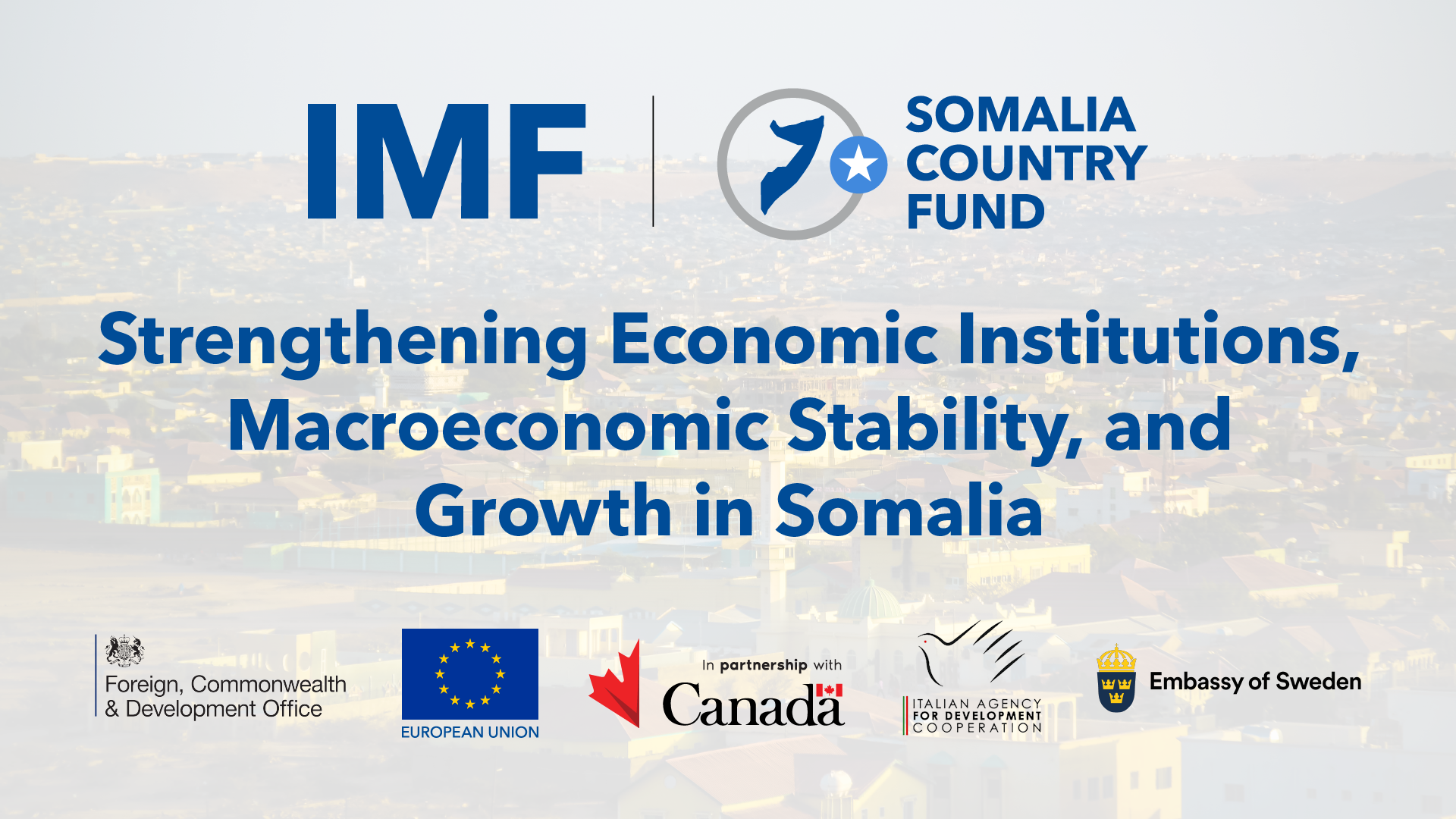Somalia Country Fund
The Somalia Country Fund (SCF), which was established by the International Monetary Fund (IMF) in 2015, aims at providing Somalia with capacity development (CD) support. The capacity development support is closely integrated with the IMF Somalia programs to help the country further strengthen key economic institutions and promote macroeconomic stability and growth, in line with Somalia’s national development plan and the government’s long-term vision.
Somalia’s reform strategy is carefully tailored and closely supported by capacity development. Key CD needs are identified based on the country’s reform objectives and IMF policy advice, following discussions between the Somali authorities, the Somalia country team in the IMF’s Middle East and Central Asia Department (MCD), and the IMF’s departments delivering capacity development. This ensures the consistency of the CD work plan with Somalia’s macroeconomic policy priorities, and, in turn, ensures CD recommendations provide an input into the policymaking process. The reform agenda is carefully prioritized and sequenced taking into account Somalia’s capacity constraints, and ensuring that reform implementation is anchored by capacity development support. There has also been close engagement with other development partners to promote complementarities with other CD providers where possible. This integration brings synergies and fosters traction in reforms.
The CD provided through the SCF has helped the authorities implement wide-ranging reforms to strengthen key economic and financial policy institutions, in the context of several Staff Monitored- and Extended Credit Facility-programs, as well as the Heavily Indebted Poor Countries (HIPC) initiative. The SCF was instrumental in helping Somalia achieve the HPIC Decision Point in 2020, and the recent progress made by the authorities is paving the way for Somalia to reach the Heavily Indebted Poor Countries (HIPC) Completion Point in December 2023, thereby opening additional debt relief opportunities for Somalia.
Under the SCF current programmatic phase (March 2021 to 30 April 2025), the IMF provides capacity development assistance to the Somalia authorities in six main areas:
- Tax policy: CD supports the design of a sustainable tax policy system that is efficient and fair, while achieving revenue mobilization needs. Core workstreams include income tax reform, revenue forecasting, policy analysis, and fiscal regime of extractive industries.
- Revenue administration: in support of domestic revenue mobilization, the focus is on compliance improvement through the development of tax audit capacity.
- Public financial management: with the aim to improve public expenditure efficiency and governance, key CD areas are strengthening the preparation and execution of a credible and transparent budget; improving fiscal reporting; developing the Public Financial Management (PFM) legal framework; and leveraging digitalization to improve PFM processes and fiscal transparency.
- Financial sector legislation, regulation, and supervision: to promote financial deepening and financial inclusion while protecting financial stability, CD support is aimed at developing regulations for sound commercial banking; building technical capacity in the areas of financial sector licensing, regulation, and supervision; and improving transparency and encouraging sound commercial banking and financial intermediation.
- Central bank organization, governance, and accounting: to improve the institutional capacity and governance of the Central Bank of Somalia (CBS) to protect macroeconomic and financial stability, CD focuses on enhancing CBS governance, transparency, and organization; and strengthening CBS accounting, internal audit, and risk management.
- Macroeconomic Statistics: to support economic management and governance, the focus is on strengthening the compilation and dissemination of macroeconomic and financial statistics, including national accounts, consumer price index, government finance statistics, external sector statistics, and monetary and financial statistics.
Priority areas in the fragile context of Somalia are regularly reassessed to best serve the country.
In the expected post-HPIC context, new capacity development areas are expected to be added to the SCF activities such as income tax reforms; debt management; monetary and exchange rate policy and operations; and financial stability analysis.
The SCF is funded by external partners whose contributions are critical to ensure smooth delivery of IMF technical assistance to support the authorities as they implement their reform agenda. Current development partners providing financial support to the SCF are Canada, the European Union, Italy, Sweden, and the United Kingdom.









